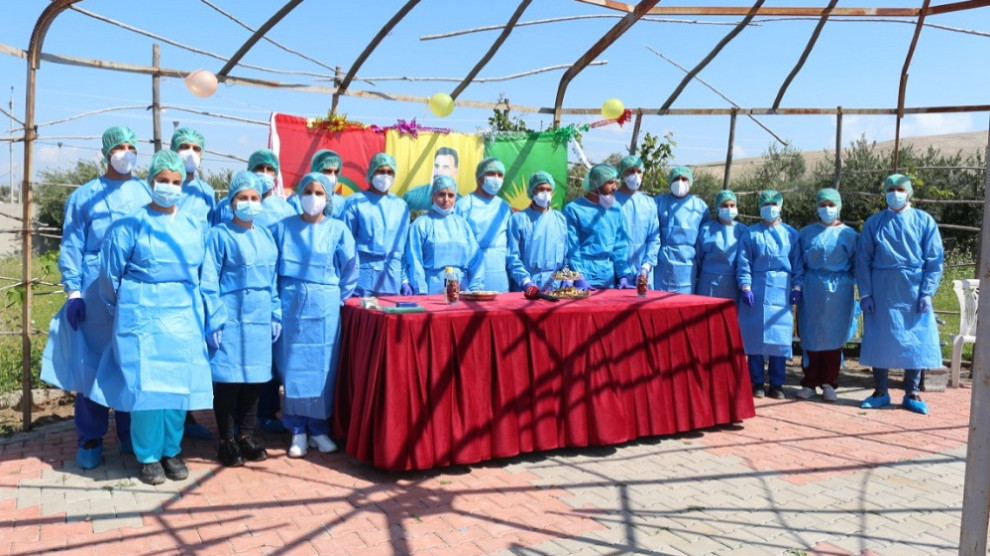
The Iraqi state medical center in Maxmur is not enough to cope with all needs. In the event of serious health problems and even for routine checks for chronic illnesses, the population used to rely on hospitals in Hewlêr (Erbil), sixty kilometers away.
However, this possibility is now prevented as people cannot leave the camp because of the embargo imposed by the KDP. Since last August, several pregnant women have miscarried because they could not be brought to the hospital in time.
There is a KDP checkpoint in front of the camp. Many people from the camp have been insulted and harassed there. A special permit from the district administrator is required to drive to a hospital outside the camp. Often only when a sick person is very bad, green light at the checkpoint is granted.
The coronavirus pandemic has not changed things and the embargo continues. The Maxmur Health Committee has called on the Iraqi and South Kurdistan governments and the UN to lift the blockade. However the appeals have remained unanswered. In order to protect the population, the health committee carried out educational work as well as health checks. Anyone who comes to the camp from outside must remain in quarantine for two weeks.
Due to the embargo, necessary medicines are also lacking in Maxmur. People suffering from cancer, diabetes and high blood pressure in particular need special medical attention.
Doctor Medya Ayvan from Hamburg spoke to ANF about the effects of the embargo on the Maxmur population. As she explains, people have been living in very tough conditions for ten months. On the one hand there is the embargo and fear of the coronavirus pandemic, on the other hand there are attacks by the Turkish state and the Islamic State.
The German doctor, who has lived in Kurdistan for almost thirty years, has seen an increase in illnesses in Maxmur since the embargo began. “The population here is in a very difficult situation because the KDP has closed the road. People with heart and cancer diseases, diabetes, high blood pressure or appendicitis and pregnant women cannot be brought to the hospital and no ambulances come to the camp. Sick people are held on stretchers for hours at the checkpoint and often are not allowed through. This has already resulted in several people losing their lives,” said doctor Medya Ayvan.
There is no way to test people in the camp for a possible infection of coronavirus. “So we all have to quarantine if we have cough and fever. – said doctor Ayvan – We organized seminars and went from house to house in the camp to distribute information material about the disease and protective measures. At the entrance to the camp we have set up a checkpoint where incoming people are subjected to a health check. We have set up quarantine stations with a team of twenty people. Over 500 people have been temporarily accommodated there. Schools, mosques and cafes have been closed. Funeral services are also prohibited. Finally we got a test opportunity from Rojava. So far, all tests have been negative.”
The embargo imposed on Maxmur refugee camp has been going on for ten months and, among other things, has a negative impact on the health care of the around 12,000 residents.

